The 11th BJIFF
Bille August: Relationship Between People Never to Be Out of Style
Danish director, Bille August, has amazed the world with his film full powerful narrative ability and oil-like texture for decades. This year, he also brought a new film The Pact to compete for the "Tiantan Award".
In the Masterclass of the 11th BJIFF this year, Bille August had an in-depth discussion with Wang Yan, a professor and PhD supervisor of Beijing Foreign Studies University. He introduced the career of creation from his early films to the Hollywood and then to his film creation in China. He was very talkative with broad knowledge and brought us a detailed and in-depth Masterclass.
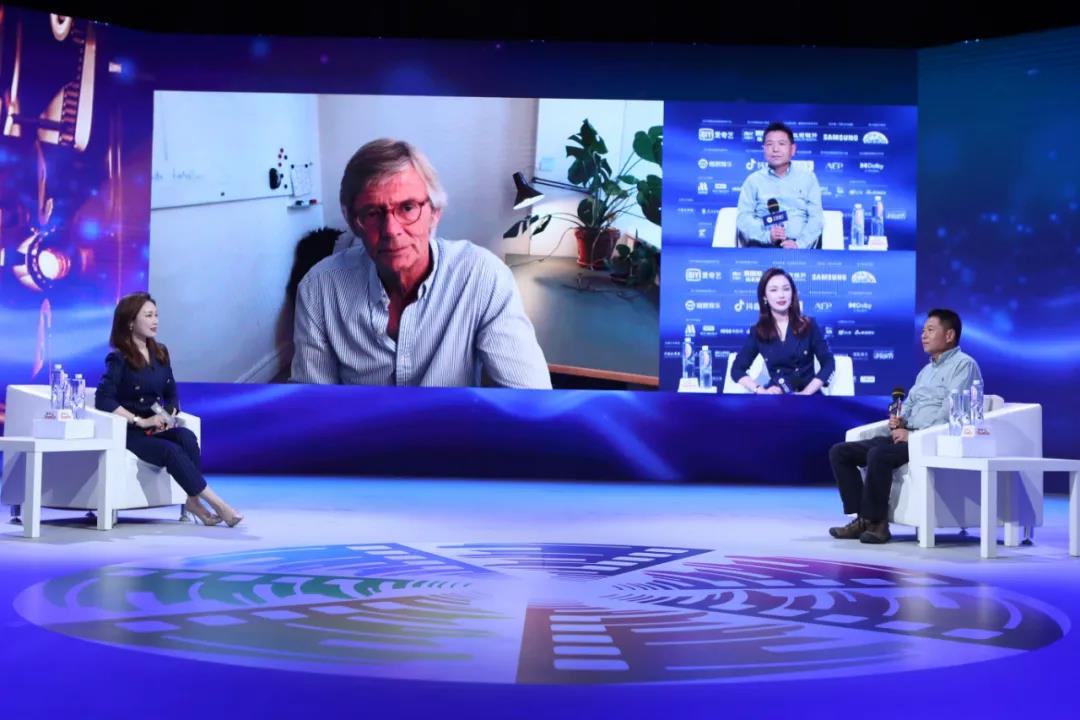
Bille August Masterclass
Creation at Early Stage and Theme of "Growth"
Bille August conducted an in-depth and detailed analysis of his early creations in the talks. He said that his films including Busters Verden and Zappa were focusing on the children to display the theme “of growth, search for self and discover self”. The protagonists in these films have a common feature, that is, they all "show a very naive state and ignorance to the world". However, he was eager to tell a person's growth in a step-by-step manner. These films became the starting point of his creation and "growth" has also become a theme in his films. "In some of my subsequent films, I also hope to show the lines of such stories."
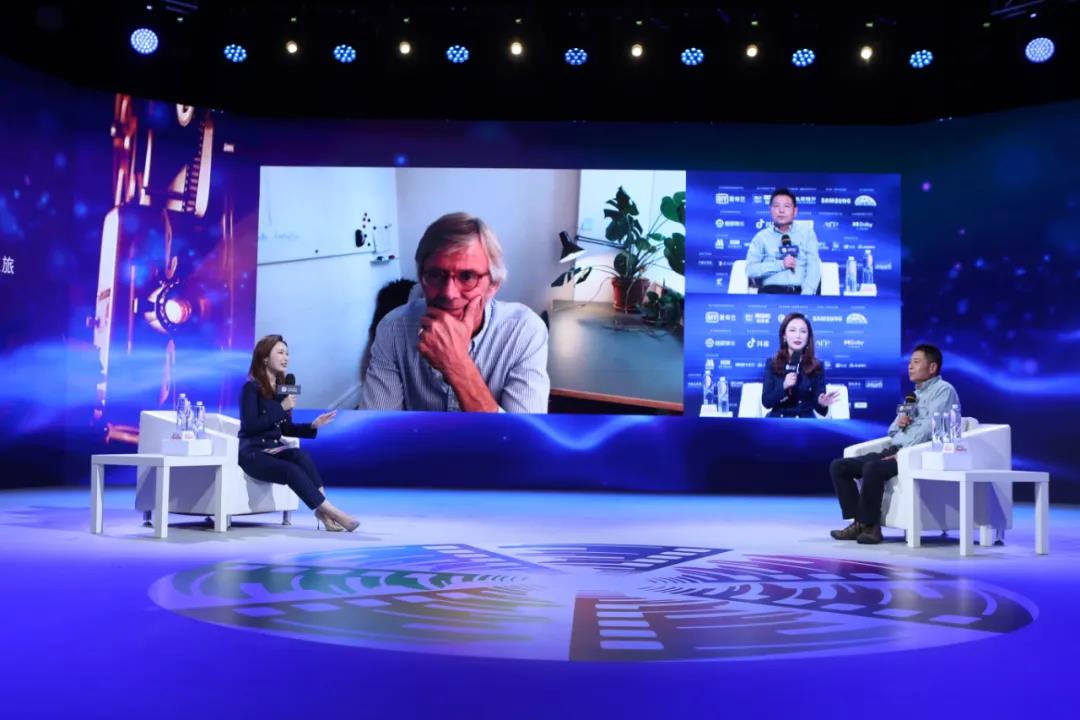
Bille August Masterclass
What really makes Bille August a world-class director is his film Pelle the Conqueror, which won the award for Best Foreign Language Film at the Academy Awards and it’s also one of the most important films in his career. The film is adapted from Nobel Prize winner, Martin Nexo’s the novel. With regard to this novel, Bille August said that it tells the childhood of the protagonist, including the love from his father. With the paternal emotion, the boy grows up gradually and becomes a conqueror in the end. In addition, we can also see in this story the attitude towards immigrants in a country. August said that the reason why he got involved in this kind of theme in his film was "I want to speak out for these people. Their voices usually cannot be heard by the world and it’s very unfair to treat them as the second-class citizens. We need to treat each other with an attitude of equality. They have the lives and dignity of their own and we need to respect the dignity.”
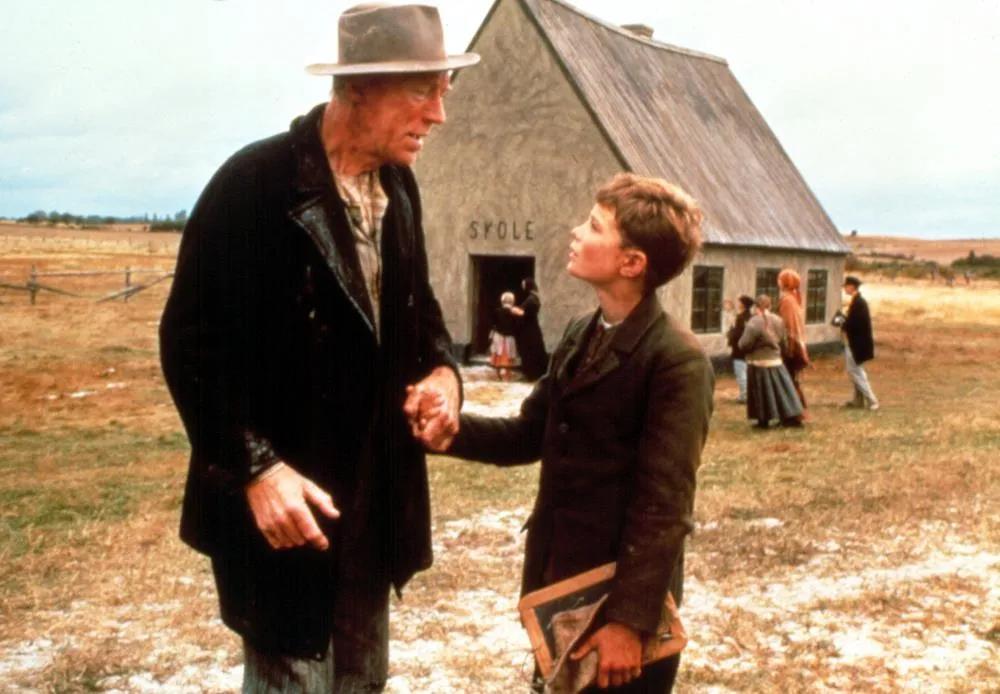
Stage Photo of Pelle the Conqueror
Both Pelle the Conqueror in 1970s and A Fortunate Man in 2018 tell the stories occurred in Denmark in the 19th century, but they reflect the 20th and even the 21st century. This feature of transcending the times and countries has run through the whole film career of Bille August. With regard to the transcendence in his films, Bille August said, “the most important thing attracting my attention is the relationship between people which will never be out of style. How to tell the story and how to make the audience interact with the storyline, so that they have a sense of participation during film watching, that’s also a question always in my mind during my creation."
Literary Adaptation in the Process of Film Creation
Bille August has adapted literary works into films many times, which have not only attracted attention in Denmark but also harvested great reputation in the world. How to make his films resonated in the world? How to successfully adapt literary works into films on the screen? The film master shared many secretes of success with the audience in the Masterclass of the BJIFF.
"Film should be loyal to the original, but we must be disloyal to the original so as to show our loyalty. In the process of adaptation, we need to exclude those we don't want to include in the story, and then gradually expand the story to transform a literary work into a film script.” Taking Pelle the Conqueror as an example, Bille August said, “what I mainly hope to express in this story is a young man about what have happened to him, how his father treats him and how his behavior has been affected – that’s the main storyline in my film. There are other stories not very important in the novel, but once I have confirmed this storyline, I will eliminate other unnecessary stories out of my film."
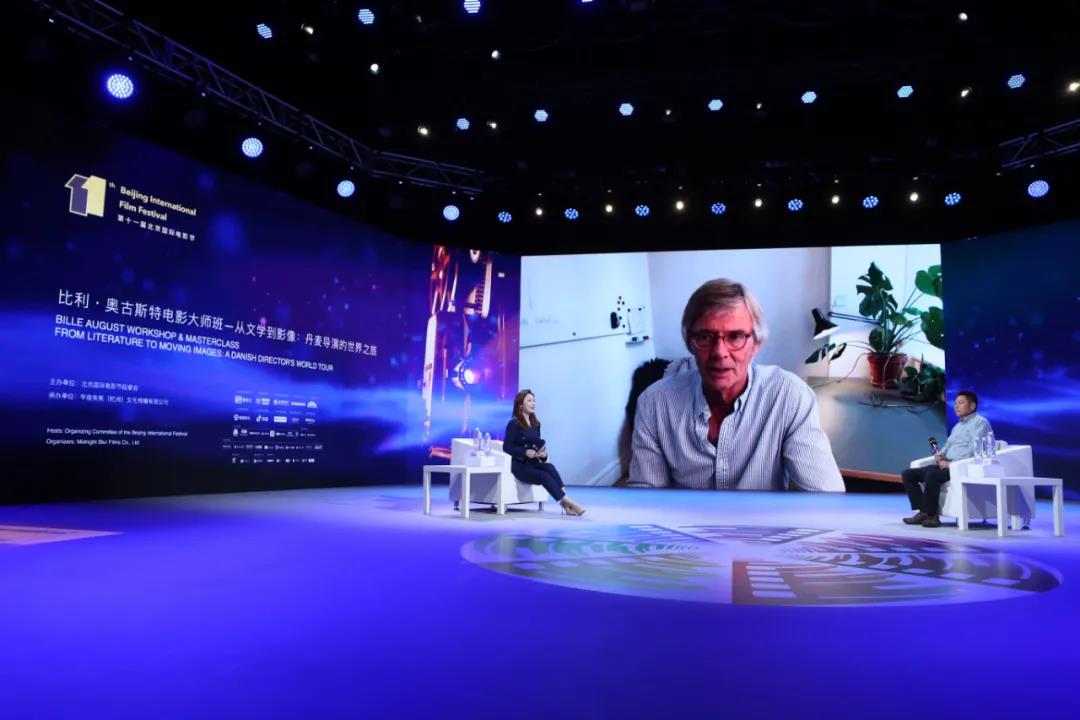
Bille August Masterclass
In addition to making the story attractive and interesting enough, how to shoot the film and how to schedule the scenes are also greatly concerned by Bille August. With this regard, he said, “I used to be as a photographer at first actually, so every time when I shoot a scene, I always consider how to make it more cinematic, how to schedule and set up the scenes. We have to decide where the characters should stand to make the whole film more attractive and interesting.” Therefore, the most important thing is, "the wholes scenes and scheduling should serve our narrative."
Cooperation and Friendship Between Masters
With regard to the establishment of his own style, Bille August said he was decisively influenced by the film master Ingmar Bergman. "My personal style was gradually established between the 1960s and 1970s. There were many masters around me, including Bergman, who has greatly influenced me. They made me realize I am very interested in humanity and interpersonal relations and I can reveal the secrets in the soul. I hope I can make deeper cultivation so as to understand what we really are as human beings."
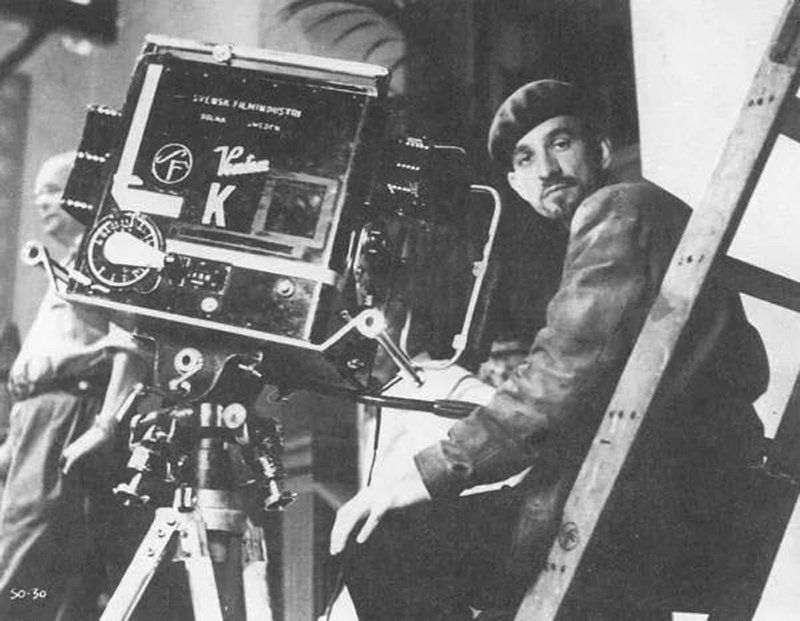
Film mater Ingmar Bergman
In fact, Bille August is not only deeply influenced by the film master Ingmar Bergman, they also have a very deep friendship. In this masterclass, he also shared the deep friendship between them with the audience in detail. He said that Bergman gave his own script of The Best Intentions to him because the film "has too many requirements on physical conditions, so he (Bergman) could not direct the film by himself. He got in touch with me then and I went to Sweden to meet him. Bergman told him at the time, ‘I’m a director and a screenwriter, but I know that this film will be one of your works and I never want to interfere.’ Later, we had very close cooperation during the whole process and we often exchanged ideas on whatever questions.” Bille August said, "Our friendship was also greatly developed at that time. It was approaching Christmas during the filming and Bergman invited me to spend the holiday with his family.”
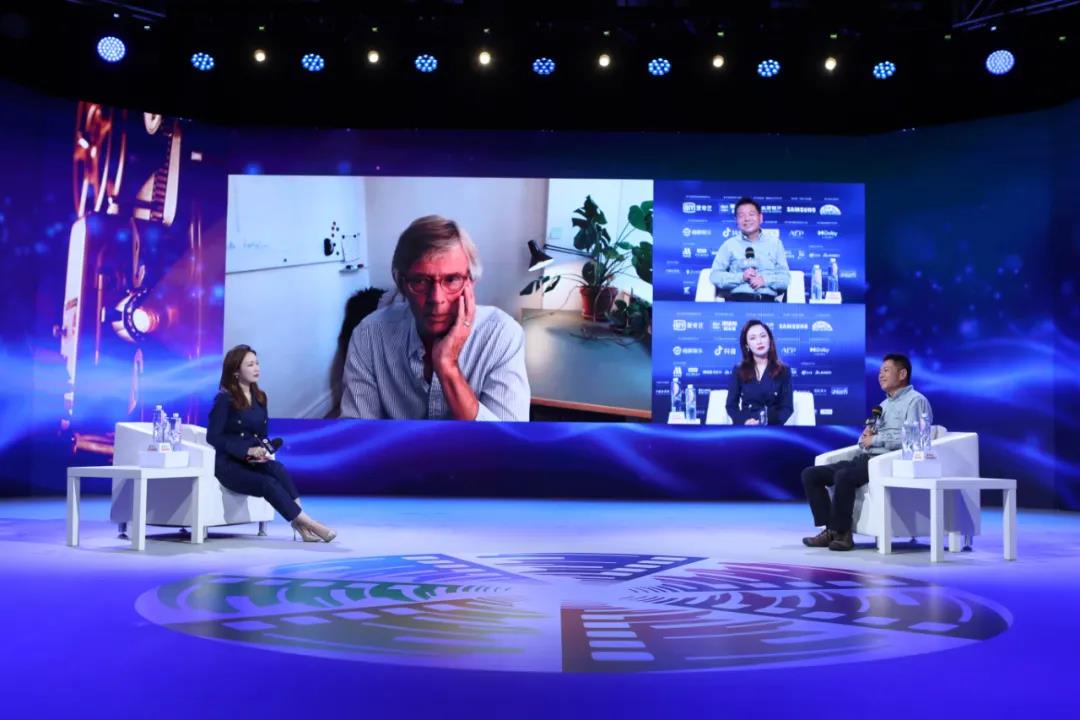
Bille August Masterclass
It’s until today that Bille August has deeply missed Bergman, his spiritual supervisor. He said, “Bergman is indeed a master. He can tell the relationship between dream and reality very well and very few directors can do that so perfectly. As for myself, I also want to tell the relationship between dream and reality, but I believe Bergman can certainly do it much better.”
From Denmark to Hollywood
In addition to learning his own national stories and culture, Bille August also went to Hollywood for film creation. He adapted a series of world literary masterpieces, including the most famous The House of the Spirits, a Latin American literature and Les Miserables written by French writer Victor Hugo.
Talking about the adaptation of The House of the Spirits, Bille August said, "This story occurs in the background of Latin American, where the situation is very different from that in Denmark. So, I especially headed for South America (Chile) with the author of The House of the Spirits and stayed there for long. We hoped to learn about the local culture and then decided to adopt the local language in the film.” On the other hand, August also discovered some similarities to his previous creations in the story. "Although the story in The House of the Spirits occurs in South America, it also tells the story about family and interpersonal relations, that ’s why I can adapt this work without any difficulty.” Similarly, Bille August also has a profound insight on the film Les Miserables and how to reinterpret Victor Hugo has become one of the biggest problems in his career. He said, “I actually know there are 23 different versions of Les Miserables, so why did I decide to shoot another one? I actually hope to focus on the theme of "forgiveness", a very beautiful trait for people and it maybe also a part of emotion and love."

Bille August talks about human relations and the adaptation of Les Miserables
In terms of the production of Hollywood films, Bille August said that it was complicated to shoot films in Hollywood because it turned out to be a business in the end Hollywood filming and nobody cared about film itself except for money. Bille August said, "(Hollywood) is a very difficult part of my life, because maybe others can also make the same film that you have spared no efforts to shoot and the film itself has lost its own special meaning. So, I’m not sure whether I still want to make a typical Hollywood film."
It was during the advance to Hollywood that Bille August started to constantly think about the relationship between himself and his national culture. "If we are making a Danish film, it must bear a strong Danish identity with very representative local culture. It’s the case not just in Denmark, but also in Italy, China and other countries. In my opinion, a culture that is national is also international. If Hollywood films are aimed at internationalization from the very beginning, they will probably suffer from failure."
The Chinese Widow and Trip in China
In 2017, Bille August filmed The Chinese Widow in China. “I acted as a jury member at the Shanghai International Film Festival, and I got a chance to make a Chinese film. Then, I was thinking what I should do to make a film in China if possible?” In fact, Bille August had always been very interested in Chinese culture. "I did read a lot of Chinese novels which impressed me very much at that time. They have a very grand narrative, which fits the feel presented by film very well."
Of course, for Bille August, the biggest problem is undoubtedly the localization of the film. How to face the critical local audience and how to make the film more local are the problems the director has always been thinking about and trying to solve during the preparation. Bille August said, “Actually this story was written by a playwright in South Africa, but we did invite some experts to review it so as to maintain its authenticity and ensure the historical details can be truly reflect ed.”
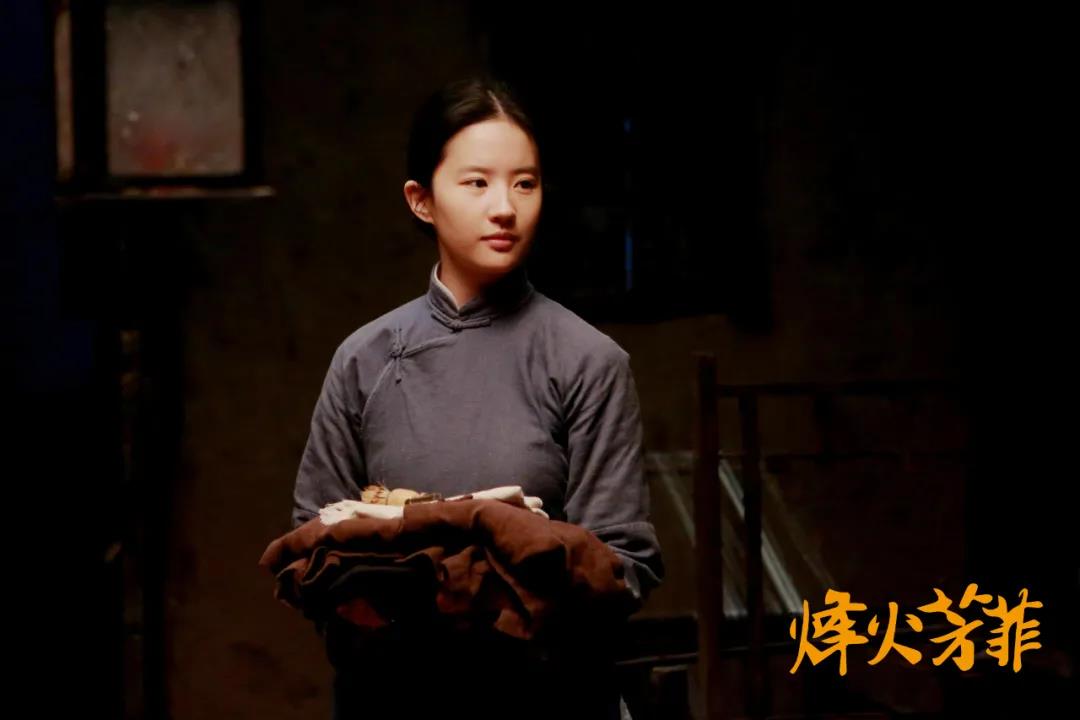
Stage Photo of The Chinese Widow
The film The Chinese Widow is undoubtedly a highlight of his career. Since then, August started to focus on the Chinese film industry with confidence and expectation. "In fact, I think Chinese film industry is doing very well, and I also hope to see more Chinese films can go out of China.” Meanwhile, he also hoped that Chinese filmmakers could pay more attention to local culture. "Maybe they don't need to make Hollywood-style films. They should pay more attention to the characteristics of China itself and carry forward Chinese culture."
Bille August hoped he could return to China to shoot films because China was his "blessed place”. "Actually, we are working on a project in China now, but it is too early to reveal too much. As I have said before, I am looking forward to returning to China so that I can make more films because it’s really a wonderful experience to film in China.”
Creation Back to Local Culture
After The Chinese Widow, Bille August returned to local creation once again. In 2018, August directed the film A Fortunate Man. This nearly three-hour film won the "Tiantan Award" at the 9th Beijing International Film Festival.
Being asked why choosing such a story for adaptation, Bille August said, “A Fortunate Man is a very good story passed on from mouth to mouth in Denmark.I have always been hoping to tell this story over the past decade. In fact, the whole film is telling the story about growth, forgiveness and other themes, a very beautiful part of Danish culture.” For Bille August, A Fortunate Man was not just a Danish story in the 19th century. "As an engineer, Peter wants to introduce an alternative energy source. Europe is facing such a problem of energy source today. Individualism is also a very interesting topic. It is because of such a topic that the story is full of modernity and is closely related to our current lives.”
The budget for this film was as high as US$ 8 million, undoubtedly a blockbuster among the Danish films. Financing was not easy, but Bille August had his own way. He said, “In a country like Denmark, it’s hard to raise so much budget and money. So during the process of production, we aim to make it into a feature film on one hand and a TV film on the other hand so as to collect funds from multiple channels.” In addition, the Danish government also provided great support for films. He explained, “The Film Institute of Denmark is obliged to provide support for 25 films every year. These films should be produced in Danish by the Danish cast & crew. Such a policy can help Danish cast & crew better trained and practiced.”
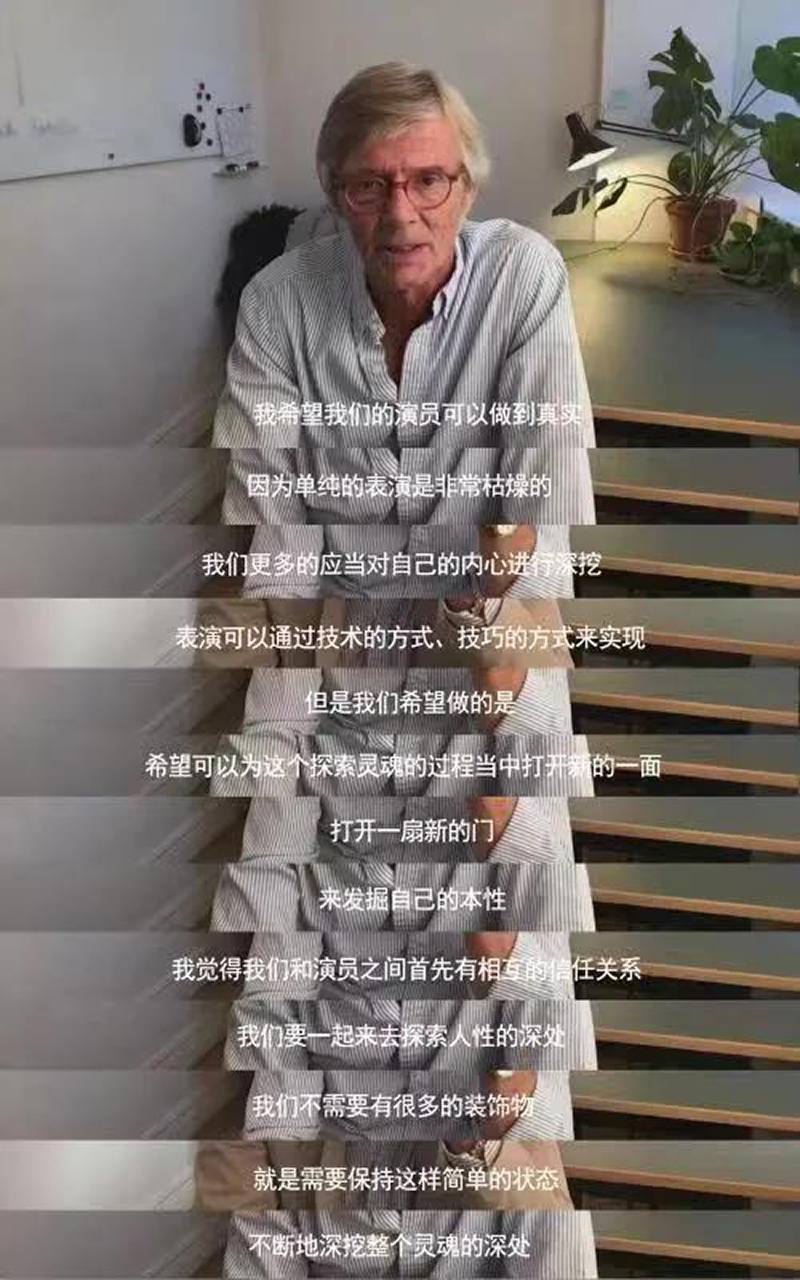
Bille August talks about performance
August will also compete for the "Tiantan Award” with his film The Pact this year and he was full of expectations for the performance of his film at the 11th BJIFF. He said that this story was adapted from a real event, "the whole story aims to explore the relationship between the two protagonists and the resulting complicated, profound and subtle influences on the relationship with the people around.” To understand what kind of film it was, the director suggested that the audience go to the cinema to experience in person during the BJIFF. We’re also looking forward to a great success of the film directed by Danish film master at the BJIFF.
